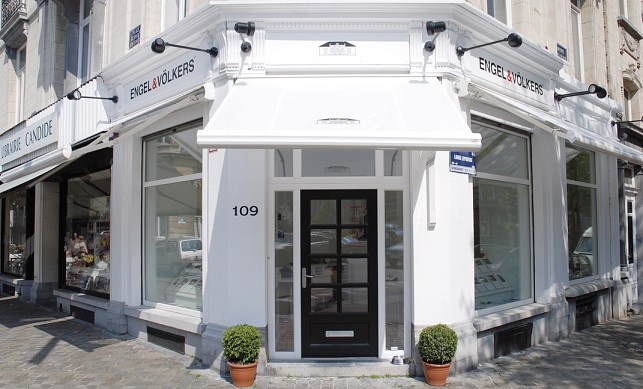Trusted for its reputation for quality service and over 40 years of experience as an international real estate group, Engel & Völkers Belgium always sees the big picture and looks at the national residential market in its economic, administrative and political context.
The Belgian real estate market is now strong and dynamic and the problems caused by the pandemic have now ended.
We interviewed Kevin Rentmeesters (Regional Director for Belgium and the Netherlands) about the national growth strategy of Engel & Völkers.
He told The Brussels Times "in 2023, we aim for a complete coverage of the country and more specifically, a fast 'coverage' of the coast line as a priority. This is reflected in the opening, again this year, of an agency in Le Coq and Ostend and, in parallel, the opening of agencies in Nieuwpoort and Knokke within two years".
"At the same time, on the subject of expansion, we have opened branches (in Flanders) in Wemmel and Leuven and are also planning other openings in Limburg (Hasselt, Genk, Tongeren and Sint-Truiden). In Wallonia, we are focusing on Mons, Charleroi and Namur. To give you some context, the transaction volume in Charleroi stood at the end of 2019 at more than €531 million".
"While the opening of new agencies meets the need to be as close as possible to the market in order to better serve our clientele, it also testifies to the trust placed in the expertise and service of the Engel & Völkers advisor by an ever-growing number of sellers and buyers".
What are the main trends in the residential sector today?
In addition to the increase in demand and the rise in prices that marked the residential market during the pandemic, there are now the repercussions of the war in Ukraine. This has led to several phenomena:
- Obtaining mortgages (*), apart from family support or a reserve of personal funds, is becoming difficult, even if - paradoxically - the total number of loans granted in Q1 2022 (± 68,000 contracts for an amount of €11 billion) is up by 4.5% compared to Q1 2021. (**)
- Many sellers are still in an 'overvaluation' phase (10>15%), while the post-covid period shows a clear rebalancing of supply/demand.
- Peripheral areas that are in high demand and appreciated for their better quality of life, and even for their attractive tax system (Flemish Region), are seeing their prices increase significantly (between 8 and 16%) and are therefore inducing major investments. As a result, if no market collapse is to be feared, sales between private individuals will be largely supplanted by professional brokers with comprehensive tools and skills.
Therefore, in addition to knowledge of the market and its financial possibilities, our employees are above all advisors with legal, financial, administrative or technical training. It is the combination of this knowledge that constitutes our know-how and our ability to market high-end properties.
How do you assess the regulatory requirements and possible tax reforms?
Belgium is three countries in one and there are as many disparities and these can be measured economically (the volume of real estate transactions is 3.5 billion in Brussels, 24 billion in Flanders and 7.5 billion in Wallonia), fiscally (registration fees) or administratively (standards).
With regard to standards, two points should be noted. On the one hand, measures are being put in place for which we do not (yet) have an operational verification structure and, on the other hand, the multiplication and tightening of requirements (asbestos removal, as-build, EPB, etc.) added to the increase in the material costs, are likely to penalize renovation operations, as it will be so difficult to rebuild new over old.

(c) Engel & Völkers
Tax reform, inevitably modulated
It is more than likely that a real estate tax reform will be introduced in the medium term. However, as bricks are in the DNA and therefore in the capital of every Belgian, it is almost certain that the taxation of rental income will be modulated. In other words, the owner of a 'retirement' flat will not be taxed (or very little), but the taxation will increase in proportion to the real estate assets (***).
Moreover, taxing rental income heavily in a period of generalized increase, while at the same time owners are forced to renovate their properties, might seem misguided! Many people would leave the sector for other investments.
This situation would be all the more damaging as the rental market, which is constantly growing and requires concrete responses, particularly with regard to indexation. However, an increase in rents can only be achieved on the condition to a reduction in charges. Older properties will therefore face major risks from the combination of an increase in rents (indexation) and charges (energy costs and/or shortages) preparing a 'harsh' winter.
Promoted Content by Engel & Völkers, Belgium
(*) In the high-end segment, loans are mainly made for tax reasons. However, the equity portfolios used as bank guarantees are subject to increasingly stringent analysis.
(**) Source: https://www.febelfin.be/nl
(***) On the other hand, higher inheritance taxes could be one of the bypasses of this new real estate tax system!

